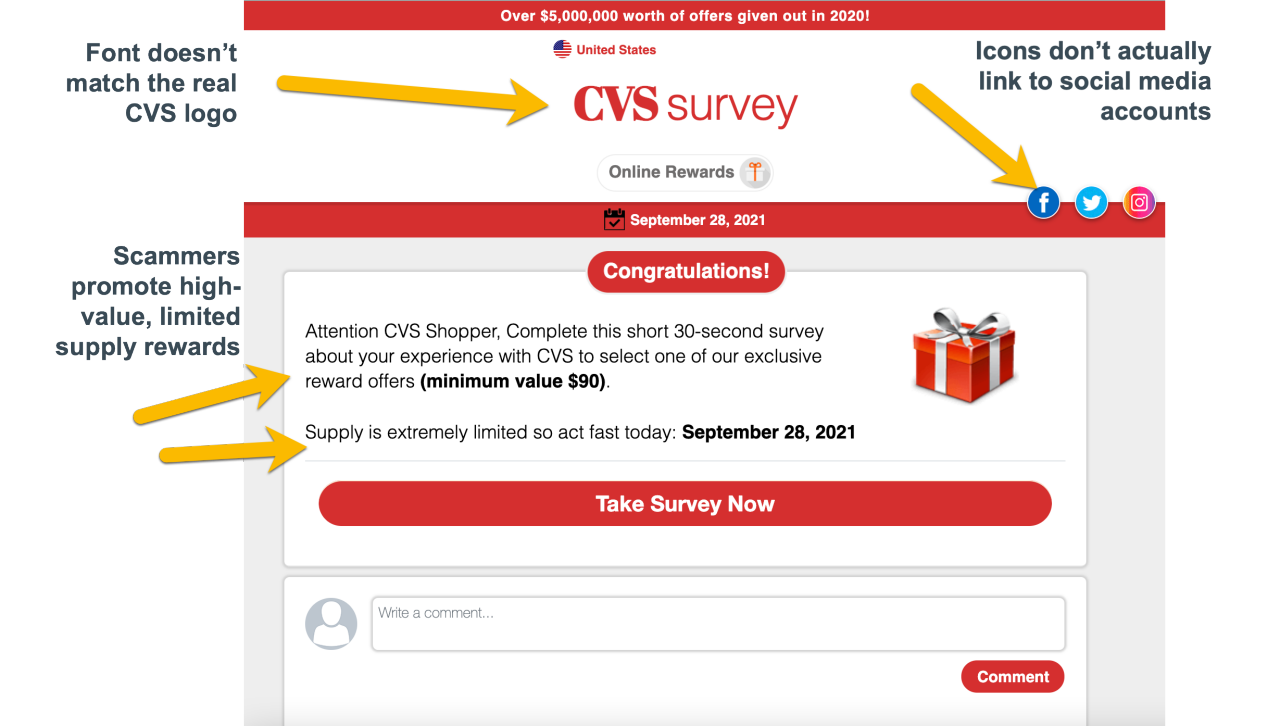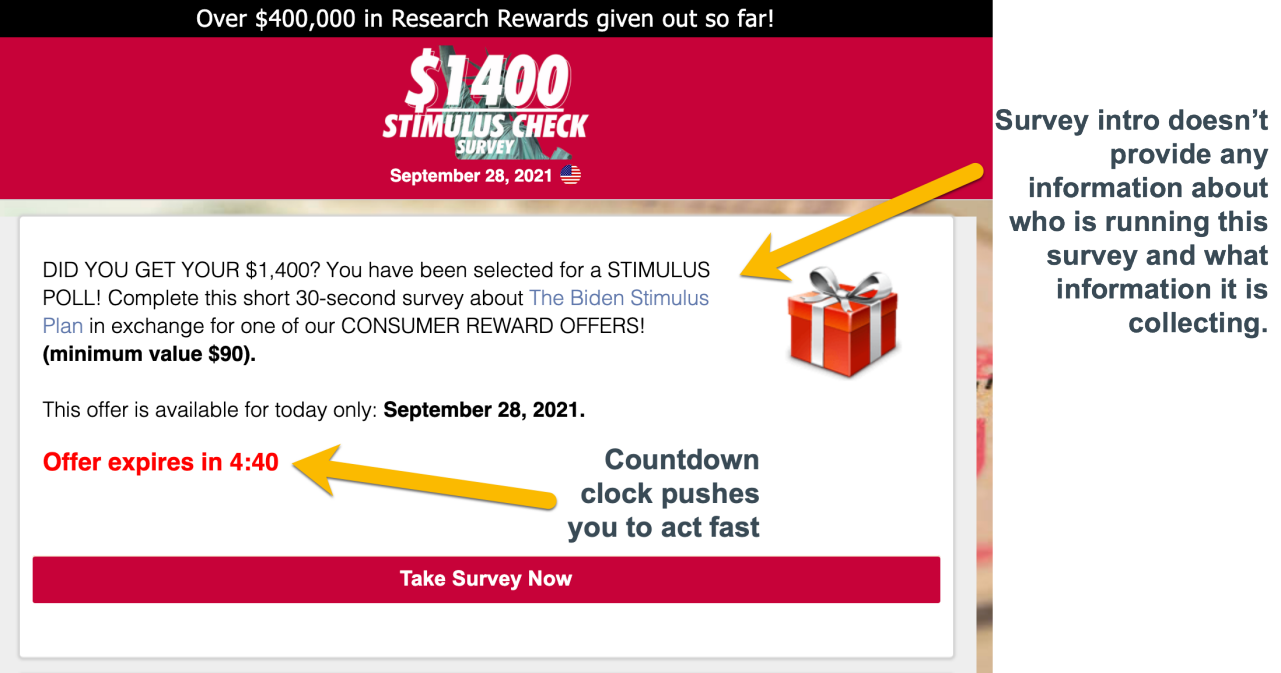BBB Tip: Learn the signs of a fake survey
Scammers use phony surveys to phish for personal information or promote spammy products. Here’s how to tell a fake survey from the real thing.
Real businesses use surveys to understand their customers or get feedback on their products and service. Unfortunately, phony surveys have become a very common way for scammers to phish for personal information.
Why do scammers use surveys? Most people like to give their opinions – especially if there’s a discount or other reward on offer. While someone might put up their guard during a sales pitch, surveys seem harmless, meaning it’s easy to accidentally share information that a scammer can use.
Watch out for these warning signs that a survey might not be all it appears.

How to Steer Clear of Phony Surveys
- Look for a too-good-to-be-true reward. If a survey offers you a $100 gift card or a 90% discount for answering three quick questions, it’s probably a scam.
- The survey heavily promotes the chance to win a reward. Real surveys are a way for a company to gather information from their customers. They may offer a small discount to encourage participation, but the reward is not the focus.
- Watch for survey questions or gifts that don’t match the store. For example, if the survey claims to come from a grocery store chain but mentions a “free gift” of clothing and jewelry, that’s a red flag. Scammers like to mix and match brands, images, and survey language from multiple companies.
- Watch for limited time offers: Scammers typically try to push you into action before you have had time to think. In the case of surveys, scammers may try to tempt you with limited free gifts.

- The survey doesn’t state who is running it and what’s the purpose. Real surveys will be very direct about the brand involved, the type of information requested, and what it’s being used for. If this isn’t provided, don’t continue.
- Watch for typos, bad grammar and incorrect company logos. Scammers can easily copy a brand's name, but awkward wording and poor grammar are typically a giveaway that the message is a scam. Other times, scammers might not use the right company logo.
- Hover over URLs to reveal their true destination. Typically, the hyperlinked text will say one thing, but the link will point somewhere else. Make sure the links actually lead to the business's official website, not a variation of the domain name.
For More Information
Learn more about a survey scam with a COVID-19 twist and truth behind Facebook quizzes. Read the BBB Tip: Smart Online Shopping and visit BBB.org/ScamTips to stay alert to new and commonly used scam tactics.
Report scams at BBB.org/ScamTracker.
